Home goes from being an adverb (modifying go), to a noun which forms a part of an adverbial prepositional phrase (I don't believe it fits the definition of the indirect object the going is not happening to the house, but rather toward it Perhaps I'm wrong here) Home is a rare word that forms an adverb in this formHave Has Go Goes Exercises (PDF) See our Grammar Rules about Have Has Go Goes and our Online Game If you found these English Grammar Exercises useful, let others know about them Grammar Notes A variety of English grammar notes and rules including charts and examples for beginner to advanced level studentsWhether or not you put a comma before and depends on how you're using andThere's no single rule that applies to all situations You usually put a comma before and when it's connecting two independent clauses It's almost always optional to put a comma before and in a list Comma Before And in Lists A lot of people have strong feelings about putting a comma before and in a list

Grammar Extra Inspired 1 Unit 3 Simple Present And Adverbs Of Frequency Pdf Semiotics Linguistic Morphology
Go and goes grammar
Go and goes grammar-Free Grammar Check All the grammar you need to succeed in life™ Explore our world of Grammar with FREE grammar &Pengertian "go" dan "goes" Kata go adalah sebuah kata kerja bahasa Inggris yang mempunyai arti "pergi", yang mana sama halnya dengan kata goesPerbedaanya hanya pada kata akhiran "es" yang ada pada kata "go" Dalam susunan kalimat bahasa Inggris yang benar, kata "go" (kata kerja pertama) digunakan pada subjek they, we, I dan you



1
Go goes going gone went I don't know without saying, is a good source of information 4 In the theatre the lights go goes going gone went I don't know down and the curtain rose on an empty stage 5 When the lights go goes going gone went I don't know'I go swimming,' as in 'I go swimming every day in the summer' is fine 'Go' the gerund is used for many activities For example, we go swimming, go hiking, go boating, go sailing, go shopping, go skiing, and many more It's not natural at all to say 'go to swim'How often 1 We often use phrases with every as adverbials of frequency We use every with words like minute, hour, day, week, month and year There is a big celebration every year We have a meeting twice every week I usually go home once every two months There is a leap year every four years We also use every with days of the week and
Go English Grammar Today a reference to written and spoken English grammar and usage Cambridge DictionaryGo is used to talk about a whole movement Get is mainly used to talk about the end of a movement – the arrival Get can also mean 'make somebody / something do something' 1 I to work by car and Susie byGo, Goes, Going, Went or Gone fishing on Saturday to a movie with your sister home soon home soon, too swimming with my younger brother shopping twice a week tomorrow, I
5 examples of sentences using "go" I go to gym everyday I need to go You must go to your home Go to your place Go and do the work When to Use 'Went' in Sentence Went a fourletter word is the past tense form of go and used to represent action happened in the past 5 examples of sentences using "went" She went to India28 intransitive when money goes, it is spent or used for something I don't know where the money goes!If you google There goes my chances you get many results You will also find a lot of results for There go my chances I am not going to tell you which one you should say That is prescriptive grammar I'm just reporting what people actually say, which is




Common And Proper Nouns Worksheet Education Com




Grammar Go Vs Goes Worksheet
Read through the 14 sentences and complete them using the following words go, goes, going, went or gone This is basic English;Intransitive when money goes, it is spent or used for something I don't know where the money goes!Move from one place to another V1, V2, V3, V4, V5 Form of Go Base Form Past Form Past Participle go went gone Base Form s/es/ies ing Form go goes going Synonym for Go;




Grammatical Errors 170 Common Grammar Mistakes In English 7esl




Form Of Verbs English Language Grammar And Tenses Facebook
Today, let's have a look at the grammar behind suggest and recommend Unlike many verbs, suggest and recommend are not followed by an object infinitive We generally use either a gerund (VerbING) or a clause with that The pattern would be that subject base verb Jack's wife recommended drinking teaIn addition to the issues regarding proper nouns mentioned in this question and its answers, there are some usage notes specific to the words you've asked about Home I'm going home The speaker is going to their home I'm going to a home A home would be usually be interpreted as some sort of assisted living facilityClick for the text form https//bitly/39a1iRzFor more quizzes wwwenglishtestblogcompresent simple I / you / we / they gohe / she / it goespast simple went




Come And Go How To Use Come Vs Go Correctly Eslbuzz Learning English




Go And Went Grammar Errors Esl Jigsaws
Go on something Most of my salary goes on the rent go to do something The money will go to finance a new community centre intransitive go (to somebody) (for something) to be sold We won't let the house go for less than $0 000Spell checkers, eBooks, articles, tutorials, vocabulary games and more!We also use go for noun when we show the purpose of the movement I go for pizza all the time Let's go for lunch;



Www Hempsteadschools Org




Self Check Pdf Adjective Grammatical Tense
Go, goes, going definition at Dictionarycom, a free online dictionary with pronunciation, synonyms and translation Look it up now!The question is asking about the usage of who would go versus who goes The OP gives also the context for which he is asked, which means it's not a too generic question It could be the answer doesn't change basing on the context, but that doesn't make the question OT – apaderno Feb 13 '12 at 1714The one that goes at the beginning is the one that would come first if it were in an ordinary declarative sentence When it's not clear which one would come first, it's more common to go back to joining separate questions with a conjunction



Grammar Grade 3 Grammar Lesson 7 Verbs The Simple Present Tense
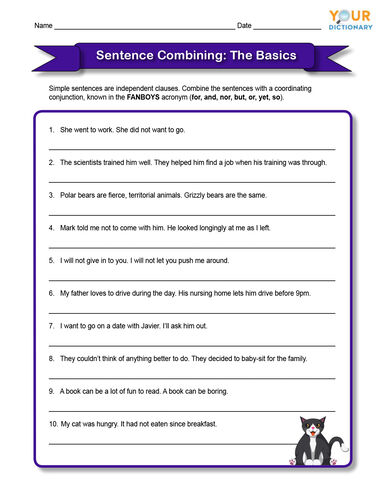



5th Grade Grammar Key Skills And Worksheets
If American Airlines is the name of a company, go is correct Thanks Bhaisahab and Mohammadhelmi for helping me In another English forum one person, who has been recognized as ''proficient English speaker'' from that forum, told me this it's a single company I'd say goes 100% of the timeSentence Structure 1 4,054 0 Do I use go or goes?The usage as a verb Go means to move from/to a particular place Both 'go' and 'goes' are in simple present tense 'Go' is used in plural number and 'Goes' is used in Singular number ExHe/she goes to schoolSingular I/They/you go to schoolPlural The word is also used to denote a particular state of mind Eg




6 Ways To Use The Verb Go In English Engvid




Grammar English Esl Worksheets For Distance Learning And Physical Classrooms
I want to see Kobe Bryant go/goes to the carnival and play their basketball game anonymous 0 I want to seeGo and Goes are both derived from a verb frm which is go The form go in most of the cases is used in subjective singular and plural"Let go for a walk" and "Let's go have a drink" or "Let's go for a drink" "Let's go eat" and "Let's eat" are both correct "let's go to eat" is not correct Using 'let's go' is different from using 'go' = )




Subjectverb Agreement Parallel Structure Unit 10 Grammar Forms




English Grammar Using Unless Definiton And Example Sentences English Grammar Here
The verb to go is one of the most common verbs in the English language and you need to learn how to use it properly Go, Goes, Going, Went are different conjugations of the verb to go The different conjugations are simply different forms of the verb that are required depending on the subject and time reference Go is the base verbMake one's way effort make an exit complement each other vitality spark depart say one's goodbyes attempt come toGo – The present tense form of the verb (the action of "going" is happening NOW) I will go out soon Let's go fishing tomorrow We used to go dancing on the weekend Went – The past tense of this verb (the action of "going" is finished and over with) We went to Spain last year The baby to sleep an hour ago




Year 4 Cefr L English L Grammar Go Vs Goes




Amazon Com Things That Go N Z Intermediate Grammar Vocabulary Esl Eld Unit Ebook Wolfe Lori Kindle Store
Go to bed It's time for the children to go to bed Certain phrases use "go on N" (where the noun is a trip or something similar) Examples go on a trip This summer we're going on a trip to Alaska go on vacation Tom always goes on vacation in July go on a tour The best way to see the sights of Rome is to go on a guided tourGo on something Most of her allowance goes on clothes go to do something The money will go to finance a new community center 29 intransitive go (to somebody) (for something) to be sold We won't let the house go for less than $0 ,000There go/goes definition is —used to say that something is no longer available or possible How to use there go/goes in a sentence




Common Errors In Spoken English Go Goes Going Went Or Gone English Vocabulary Words Learning English Language Learning Grammar Learn English Words




Go And Do Present And Past Tense Past Tense Present Tense Verbs Tenses
Amadeus _____ to Pangkor Island last holiday A go B went C going D goes Grammar QuizEnglish Grammar Today a reference to written and spoken English grammar and usage Cambridge DictionaryThe verbs do, go, and have are irregular for he, she, it, and singular subjects She goes home at sixthirty He has a meeting at twothirty John does the laundry on Sunday night 33 Irregular Verbs Do, Go, and Have 8 Complete the paragraphs with the correct form of the verbs in parentheses Manuel and Lila Vega




Early Grades Grammar Workbook Pdf Kamali Academy Store



Grammar Grade 9 Grammar Lesson 2 Word Order 1 Verb Object Place And Time
Usually we only add 'S' to a verb when we conjugate it in the third person but notice how To Have and To Go are slightly irregular (though they still both end in S) I go You go He goes She goes It goes We go They go You goLet's go back to basics and review a somewhat unusual grammar structure that trips up even fluent nonnative speakers I'm talking about the verb go ing, also called go gerund or go verb ing If you've been listening to native speakers, you've probably heard them say something like I'm going running after workCalifJimSpecial thanks 'go or goes'(I think go)A special thanks 'go or goes' (Goes)A special thank you 'go or goes' (Goes)Thank you very much, CJ So for the example that you skipped since it is not grammatical, the article has to be included at the beginning just due to the sentence not being possible when using the singular 'goes', which is shown in the previous




Mp Board Class 8th Special English Grammar Time And Tense Mp Board Solutions




Go Goes Going Went Or Gone
To make a negative sentence in English with To Have and To Go we use Don't or Doesn't followed by Have or Go (never Has or Goes) Affirmative You have a pen Negative You don't have a pen You will see that we add don't between the subject and the verb We use Don't when the subject is I, you, we or theyThis video explains the use of the verb Go and how it changes with the pronouns and the tenses I have explained it in a simple manner and it is easy to undeGo V1 V2 V3 V4 V5, Past Simple and Past Participle Form of Go Verb;



1




Name Date Grammar Worksheet Prepositions Of Grammar Worksheet All Things Grammar Grammar Focus Pdf Document
Usually we only add 'S' to a verb when we conjugate it in the third person but notice how To Have and To Go are slightly irregular (though they still both end in S) I go You go He goes She goes It goes We go They go You goHowever, I often hear English learners using the wrong verbs when speaking Take a moment to look at the context of each sentence before making your choice 2 options are possible for question 7Basic Rule A singular subject (she, Bill, car) takes re on the desk If you know that list is the subject, then you will choose is for the verb Exceptions to the Basic rule a The first person pronoun I takes a plural verb (I go, I drive) b The basic form of the verb is used
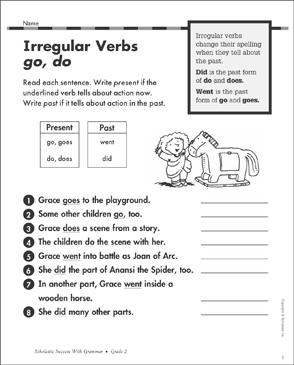



Verbs Grammar Practice Printable Test Prep And Tests Skills Sheets




Grammar The Past Simple And Expressions Of Past Time
As with the present tense, several past tenses lack a version of go, and they are all passive These are the past simple passive, continuous passive, and perfect passive Future Tenses Future (will) Jennifer will go to the meetingConjugate the English verb go indicative, past tense, participle, present perfect, gerund, conjugation models and irregular verbs Translate go in context, with examples ofIs the sentence correct?




English World 6 Grammar Practice Book Pdf Txt
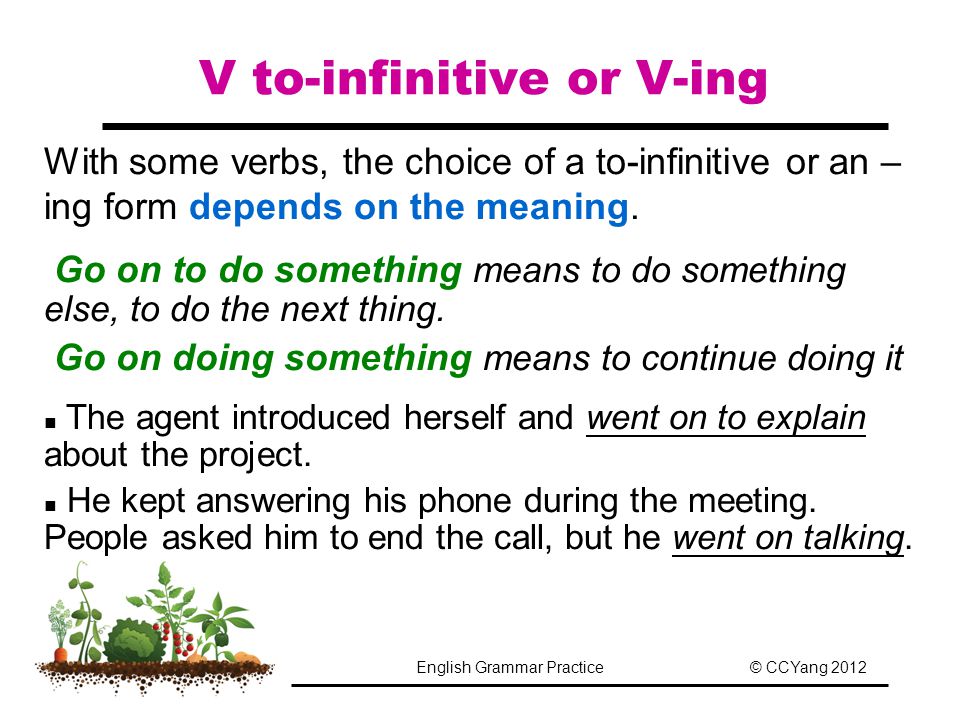



English Grammar Practice Ppt Download
The verb GO We all know the meaning of the verb 'go' and its different forms like going, went, gone However, when this verb is used with a preposition or adverb or both, the meaning can change and the combination is called as a phrasal verb, which can be said as an idiomatic phraseKen goes for a haircut every other week We use go in to mean enter When I go in there I always enjoy the atmosphere Let's go inSimply paste or write your text below and click Check My Writing to



3



What Is The Use Of Go And Goes In Grammar Quora
YesNo Question Complement vs Compliment Conjunction On, At, By Grammar speak,talk,say,tell Will or Going to Preposition Past Simple and Past Continuous Relative Clauses and Past Perfect Other quiz Past TensesIt depends on what you are trying to say The first is a sentence fragment, so does not work as a question or a sentence The second statement is a properly formed question, and inquires about her typical destination If you wish to ask about a spAs verbs the difference between go and goes is that go is to move while goes is (go) As nouns the difference between go and goes is that go is (lb) the act of going or go can be (board game) a strategic board game, originally from china, in which two players (black and white) attempt to control the largest area of the board with their counters while goes is




Dale Public Schools Grammar Practices




101 English Grammar Worksheets For English Learners By Billgreen54 Issuu




Grammar Auction
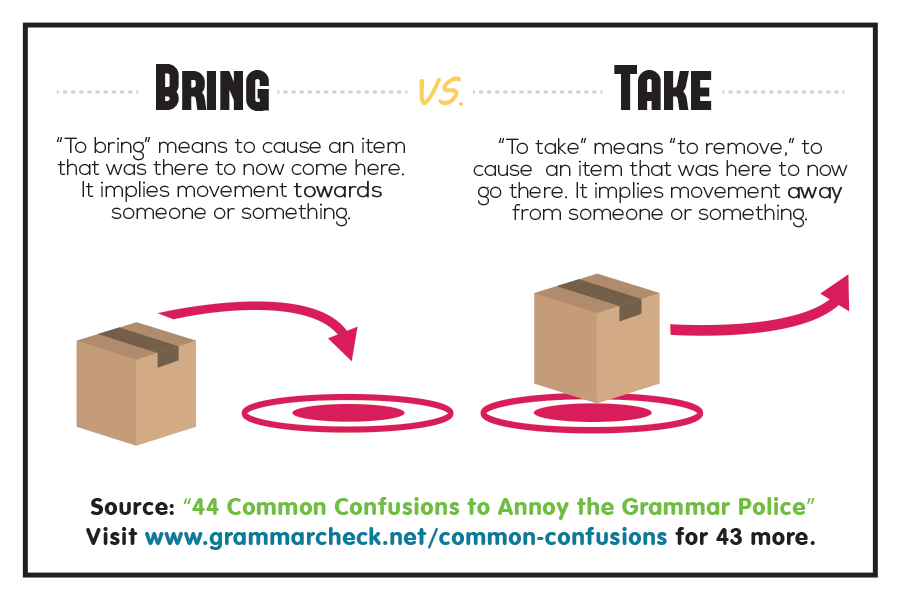



44 Common Confusions To Annoy The Grammar Police




Sparking Grammar Success My Shoestring Life




Skill Sharpeners Grammar Punctuation Grade 1
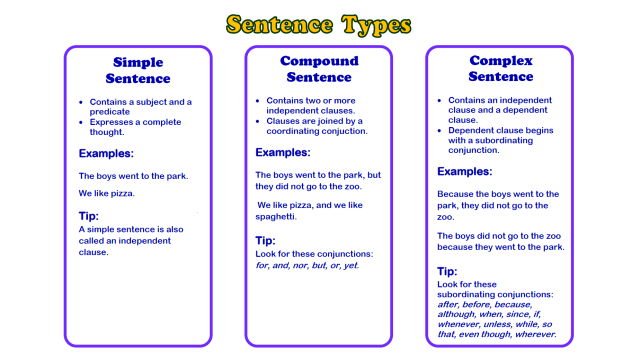



Sentence Types English Grammar Exercise Intermediate Level Bitgab
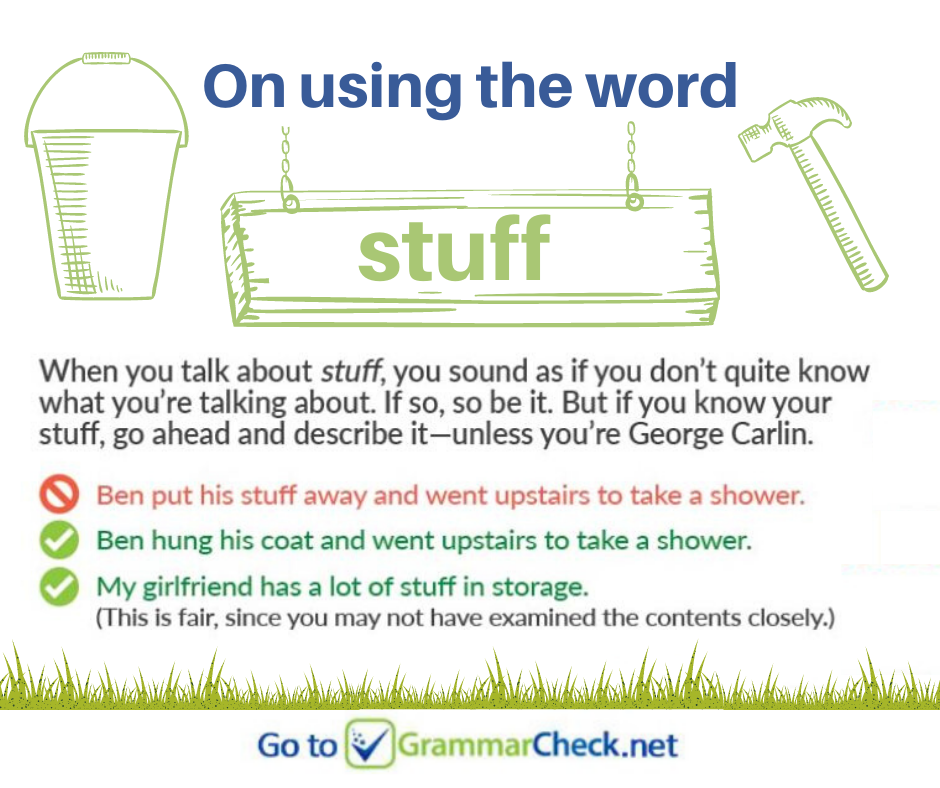



English Grammar Do You Often Use The Word Stuff English Grammar Esl Teacherresources Language Englishlanguage Words Vocabulary Amwriting Writingtips Writingcommunity Vocabulary T Co Wzcqzgwhzw
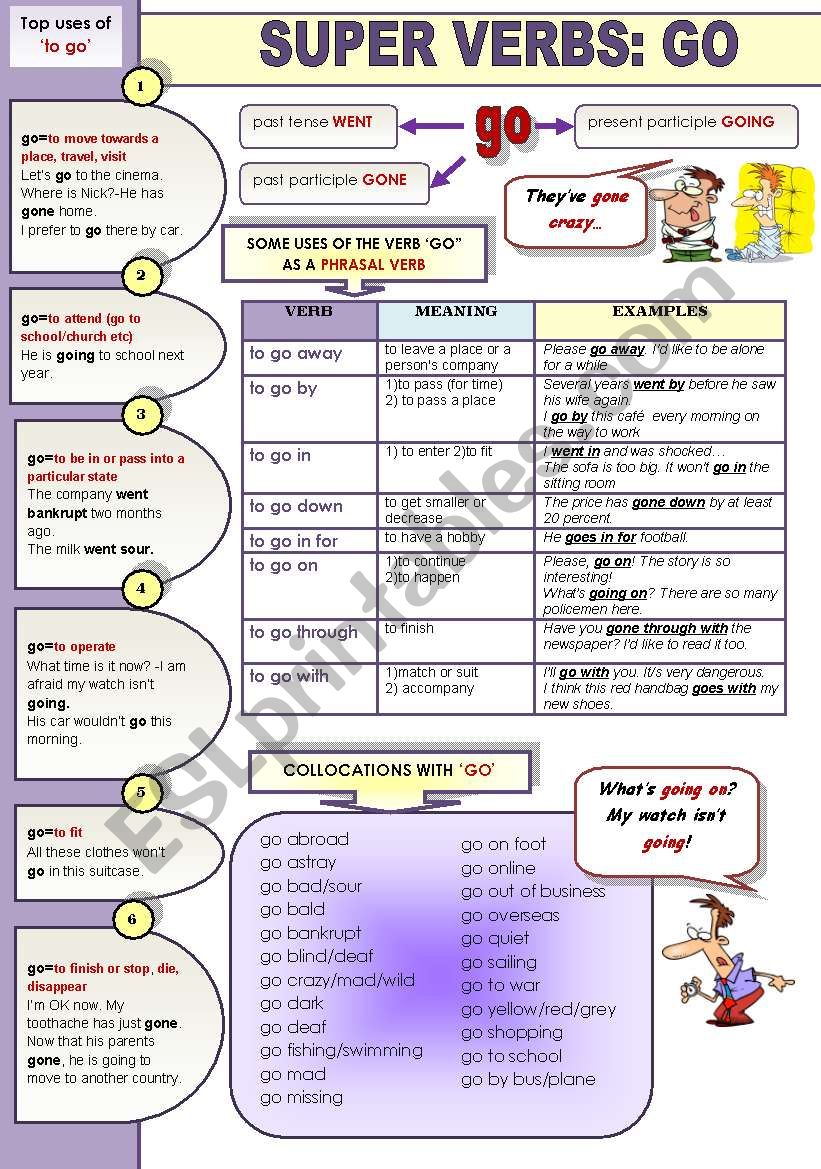



Super English Verbs Part 5 Go 1 Page Grammar Guide Top Uses Of Go Go As A Phrasal Verb And Collocations With Go Esl Worksheet By Svetamarik Svetlana



1




Style Versus Grammar




Esl Quiz Go Goes Going Went Or Gone Charles Kelly I Tesl J English Vocabulary Words Grammar And Vocabulary Vocabulary Words




Ieltswitharun Go Vs Went Vs Gone Grammartips Spokenenglishtraining Learnenglisheveryday Learnenglishbetter Spokenenglishcourse Grammar Grammarly Learnenglish Easily Spokenenglishskills Grammarclass Learnenglisheasy Grammarnerd
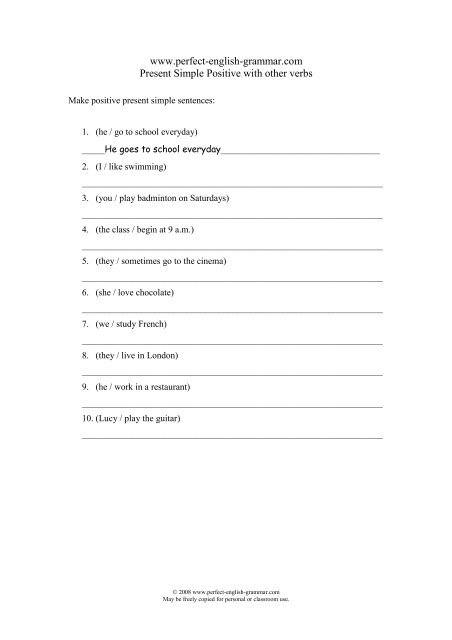



Www Perfect English Grammar Com Present Simple Positive With




9 Common Grammar Mistakes That Make Students Lose Marks Education Today News




Practice And Assess Grammar Grades 4 5 Speech Corner




How To Use The Verb Go Go To Go For Go On 7esl
(75).jpg)



Direct And Indirect Quiz Test Your English Grammar Skills Proprofs Quiz




Westman Immigrant Servicesclb Level 3




Grammar Diagnostic Multiple Choice Worksheet Quickworksheets
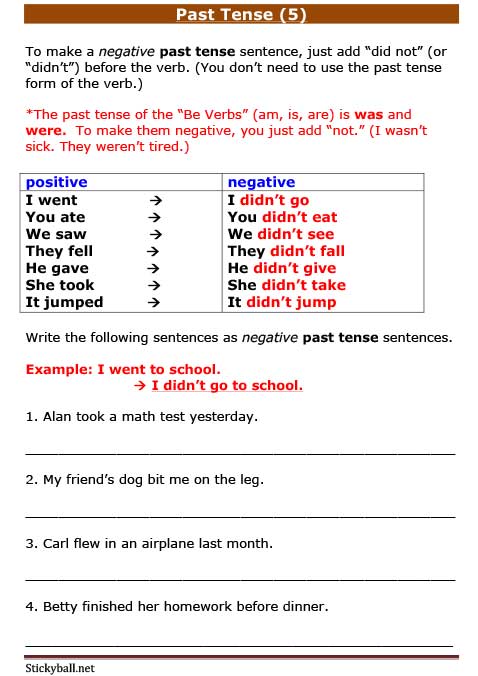



Esl Grammar Past Tense With Didn T
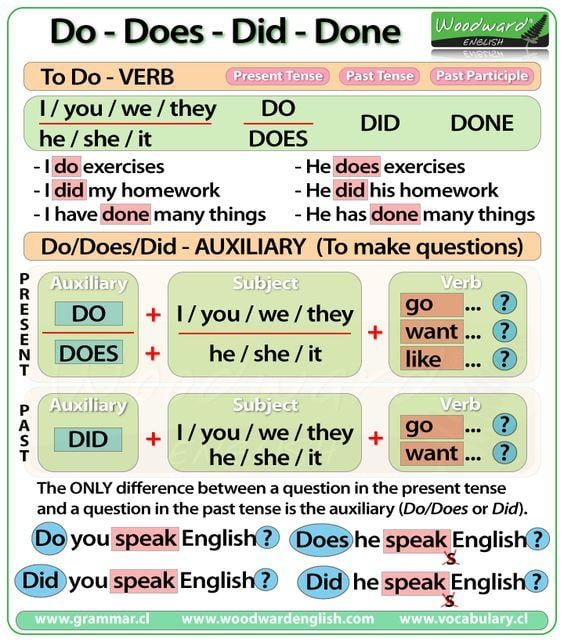



Do Does Did Done
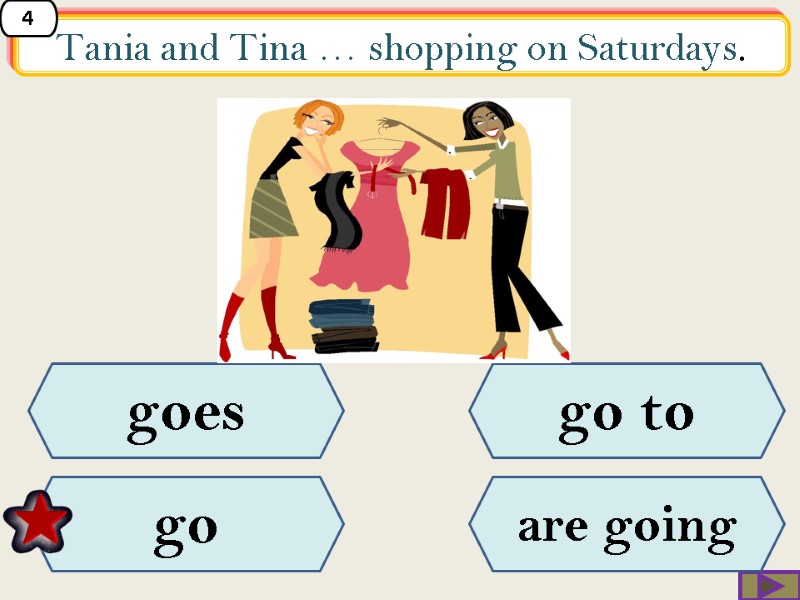



Grammar Test 1 He Was The Stolen Furniture Onto




The Grammarphobia Blog Why Is It Went Not Goed




Year 3 Get Smart Plus 3 Unit 4 Grammar Go Vs Goes Youtube




Go Went Gone What S The Difference Learn With Examples
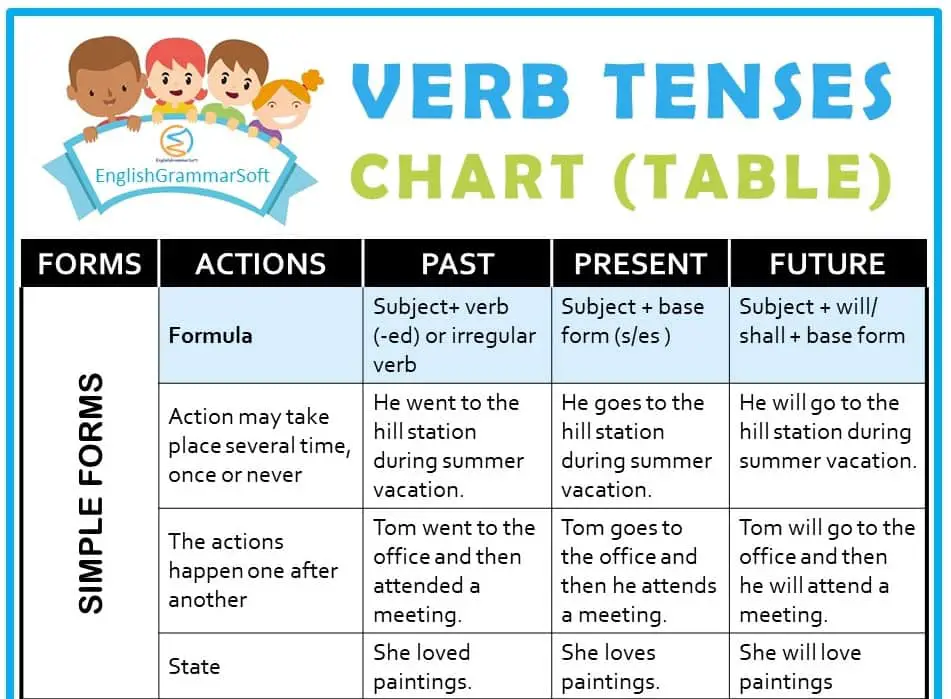



English Grammar Englishgrammarsoft




Do Vs Does Questions English Grammar Rules




Year 3 Coordinating Conjunctions Grammar Worksheets Lesson Pack Plazoom




Linking Verbs That Describe Changes



2




Grammatical Errors 170 Common Grammar Mistakes In English 7esl




Fillable Online Grammar Test Primary Grades Class Page Fax Email Print Pdffiller
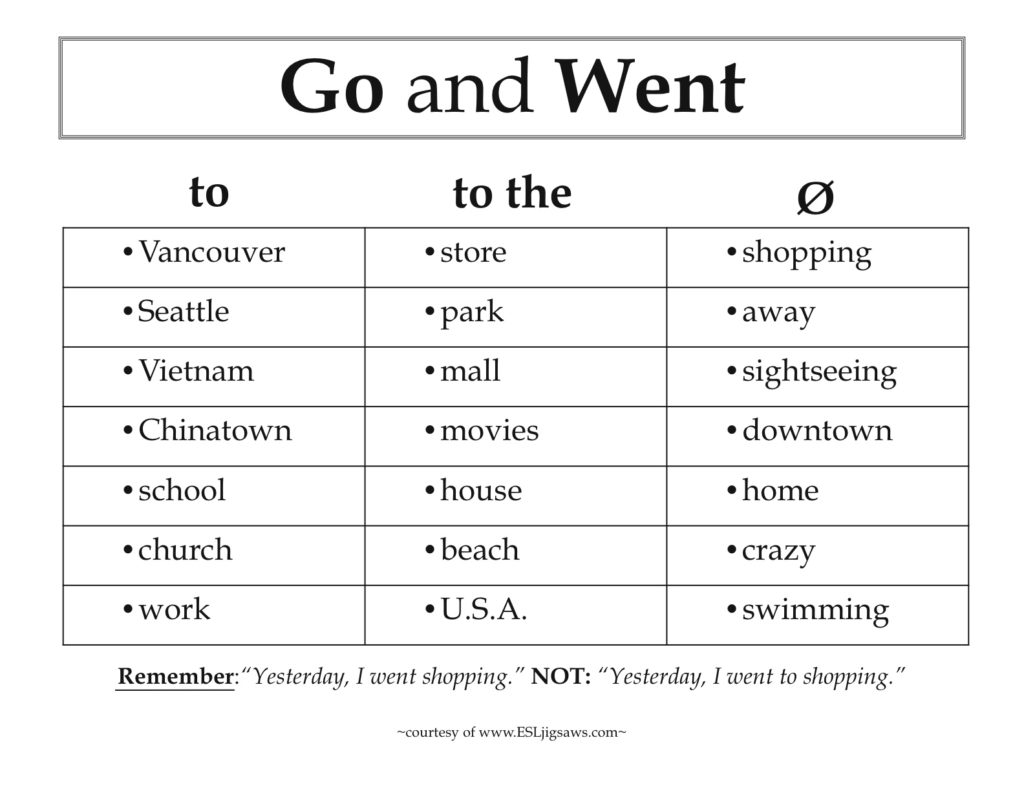



Grammar Esl Jigsaws



Grain Of Grammar Play Go Do




Unit 3 Festivals Section C 3 Grammar 2




Grammar Extra Inspired 1 Unit 3 Simple Present And Adverbs Of Frequency Pdf Semiotics Linguistic Morphology




Prepositions Of Movement Vocabulary Englishclub
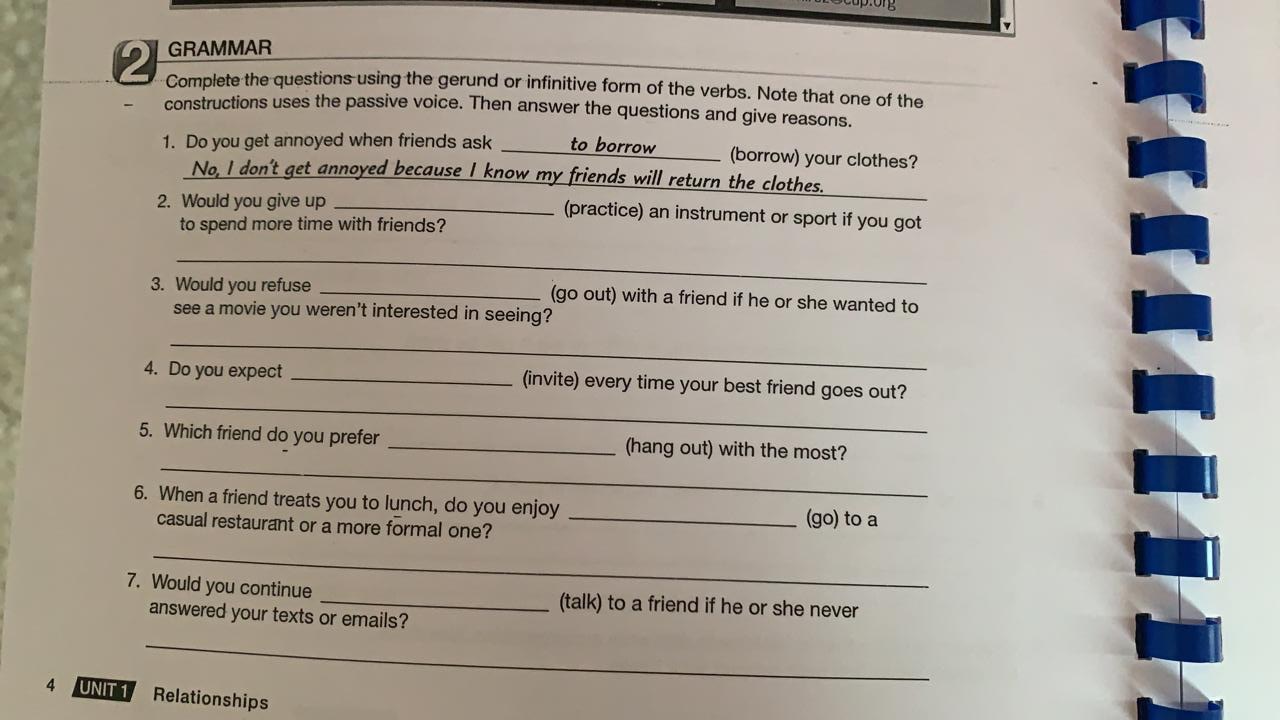



2 Grammar Complete The Questions Using The Gerund Or Chegg Com




Grammar Check Of Teacher S Snippy Hall Pass Jori Lindley
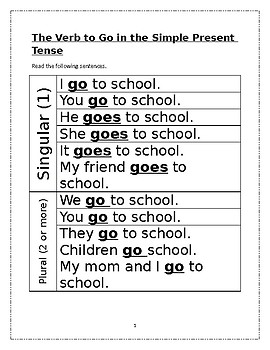



Gr 1 Grammar Verb To Go Simple Present And Past Tense By A A Tpt




To Go Went Gone Esl Worksheet By Katiana




Common Errors In Spoken English Go Goes Going Went Or Gone Learn English Mistakes Misused Grammar English
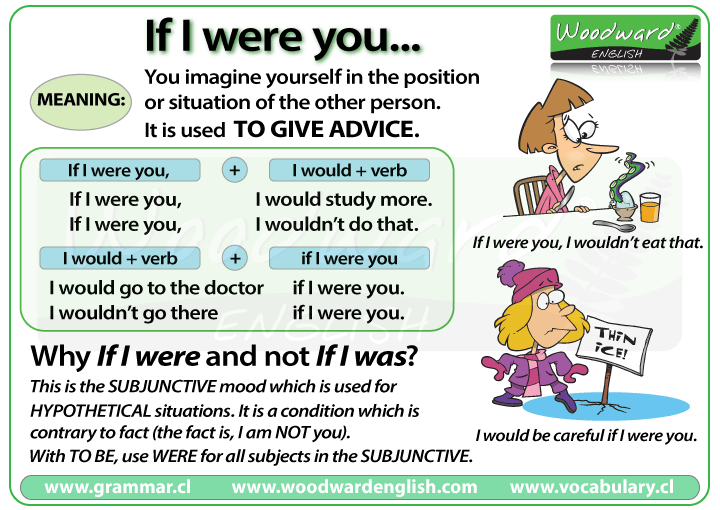



If I Were You English Grammar




Super Goal 3 Grammar Revision Worksheet




Basic English Grammar Betty Azar Flip Book Pages 251 300 Pubhtml5



Common Errors In Spoken English Go Goes Going Went Or Gone Learn English Mistakes Misused Grammar English




Elt Concourse Development Making Grammar Interesting



Common Errors In Spoken English Go Goes Going Went Or Gone Learn English Mistakes Misused Grammar English
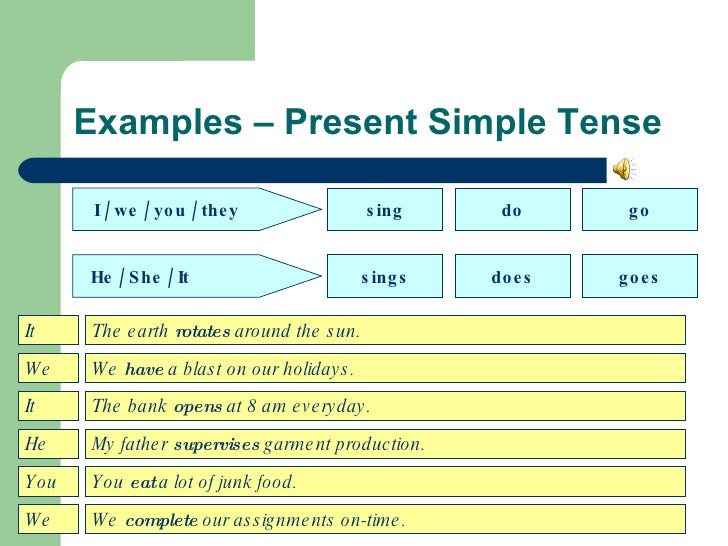



Free Online English Grammar Course Bm English Speaking1
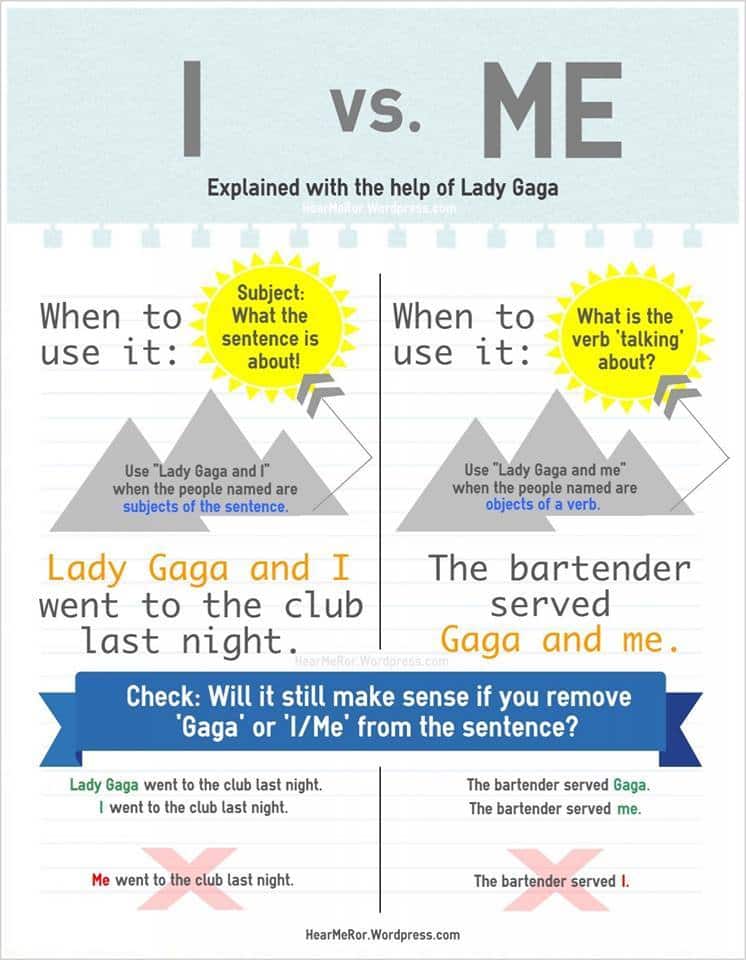



Grammar With Kate I Vs Me The Aha Connection
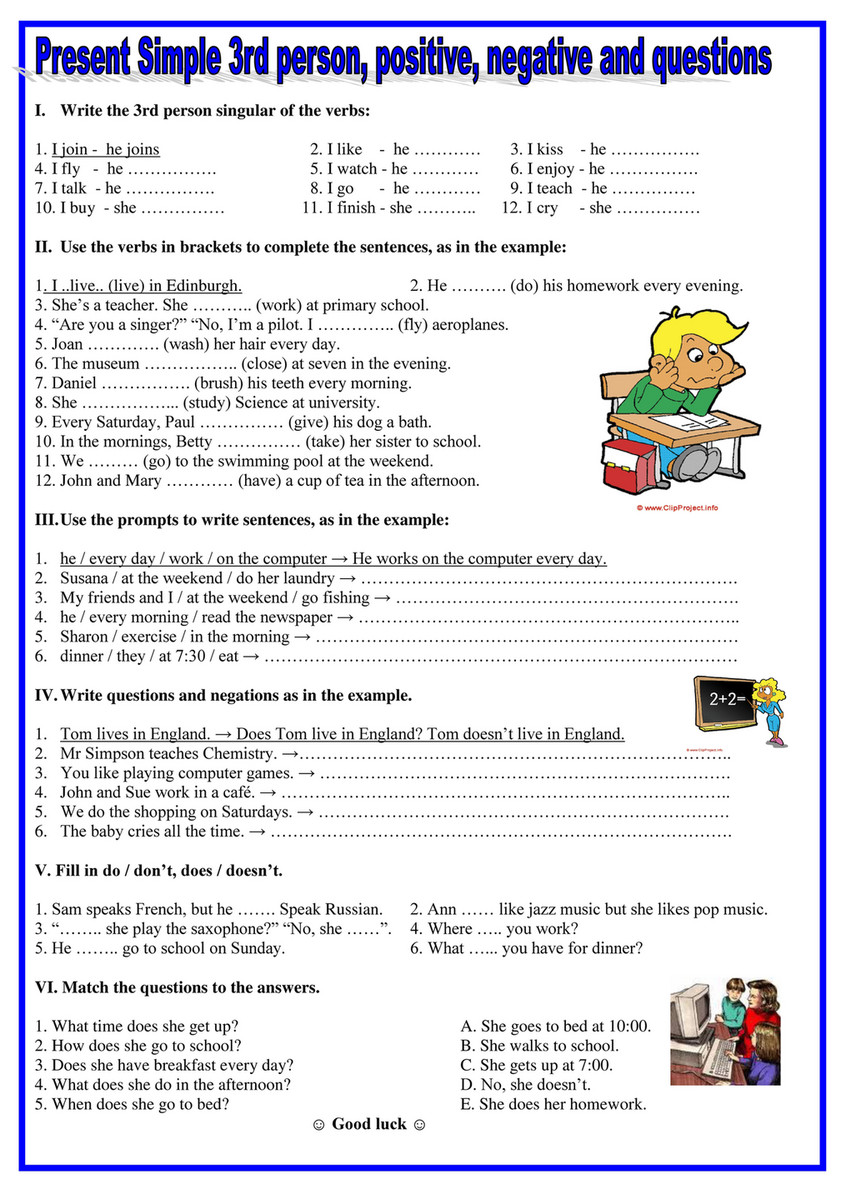



Lainic International Ltd Present Simple 3rd Personpositive Negativequestion Grammar Drills Grammar Guides 779 Page 1 Created With Publitas Com




Paragraph Editing And Grammar Correction Workbook Proofreading Punctuation And Comprehension Daily Practice Sheets Homeschooling Material Reading And Writing Practice Grades 3 6 Publishing Learning Hub Amazon Com Books
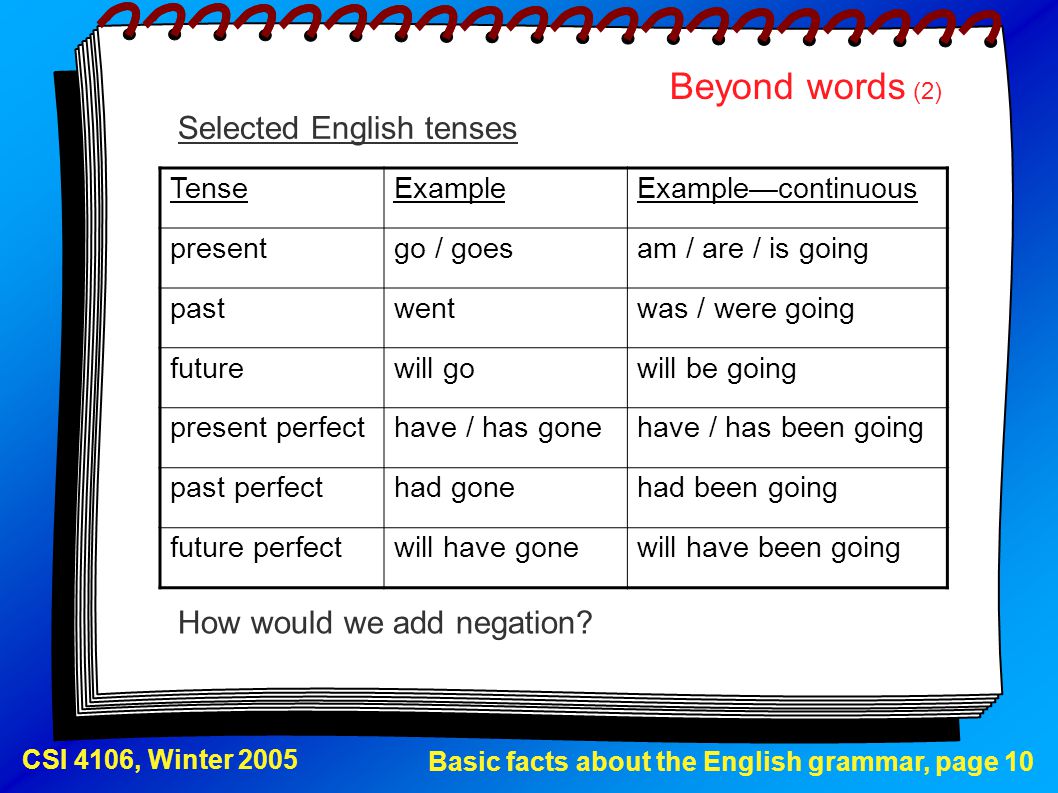



Basics Of The Grammar Of English Ppt Download
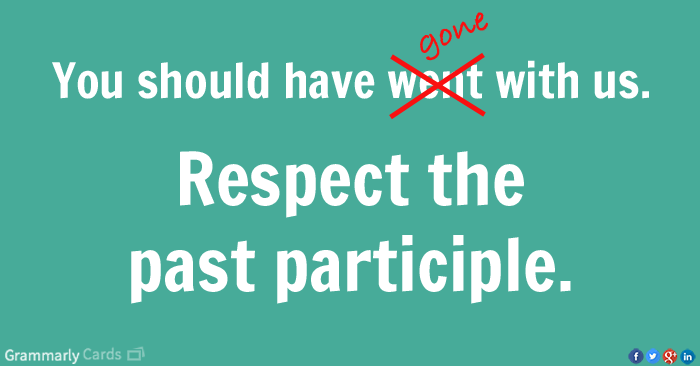



Went Vs Gone Learn The Difference In Under A Minute Grammarly




English Grammar Introduction Lazarus Language Collective
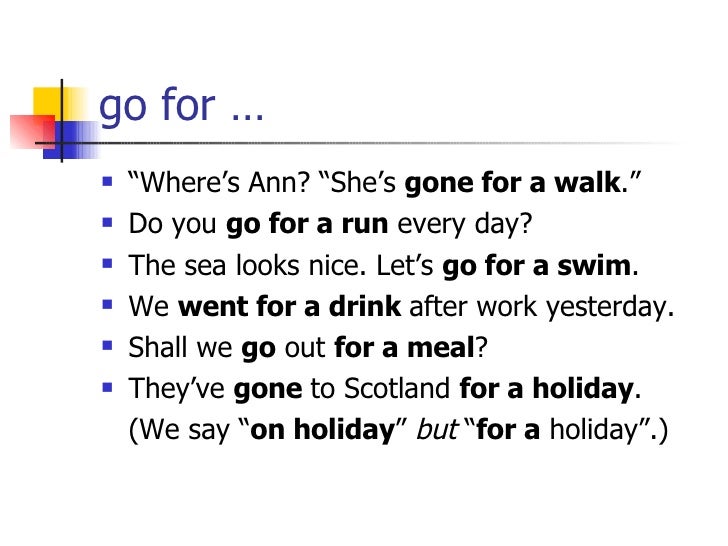



English Grammar




Grammar Simple Present Tense Activity
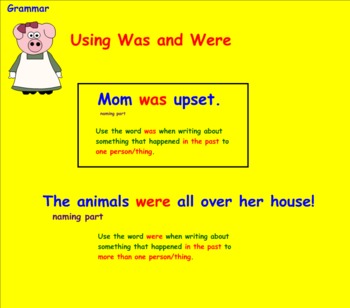



Verbs Using Am Is Are Was Were Go And Went Smartboard Grammar
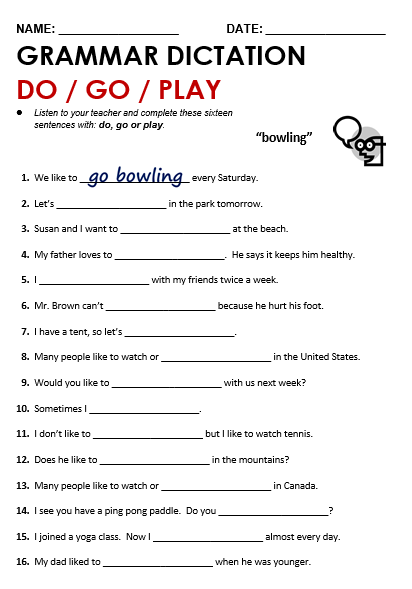



Do Go Play All Things Grammar
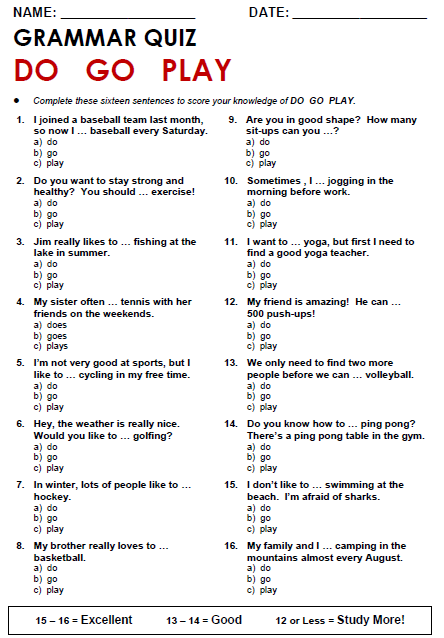



Do Go Play All Things Grammar




Freya Week 4 Grammar When Did It Happen Greyfriars
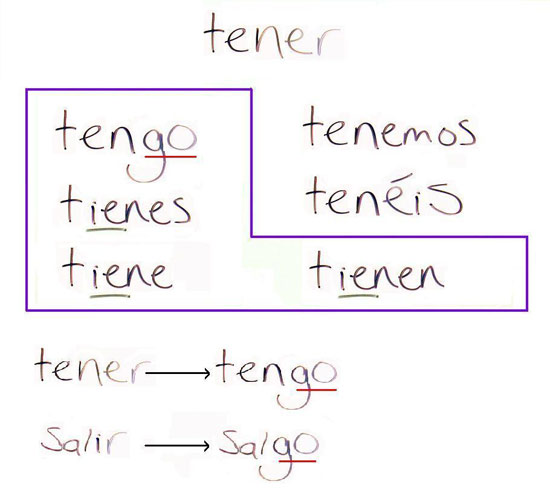



Carla Spanish Grammar Strategies




Simple Compound Or Complex Sentence Worksheets K5 Learning




Go Or Goes




Phrasal Verbs Go English Esl Worksheets For Distance Learning And Physical Classrooms




Phrasal Verbs Go English Esl Worksheets For Distance Learning And Physical Classrooms




So That Vs In Case In English English Study Page




Beowulf S Grammar Workbook Guest Hollow
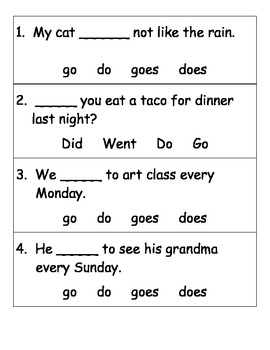



Scoot Game Verb Tenses Of Go And Do By Kelly Ingle Tpt



Welcome Past Simple Tense Regular Verbs



Go Gone Went Mimbarschool Com Ng
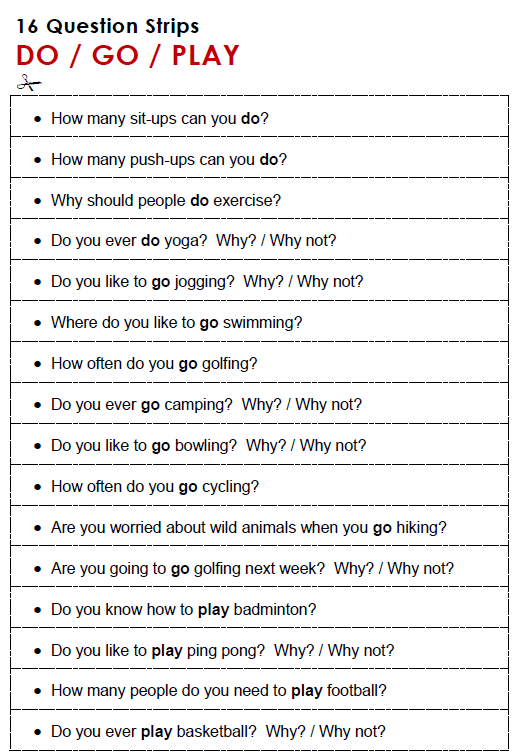



Do Go Play All Things Grammar



1



0 件のコメント:
コメントを投稿